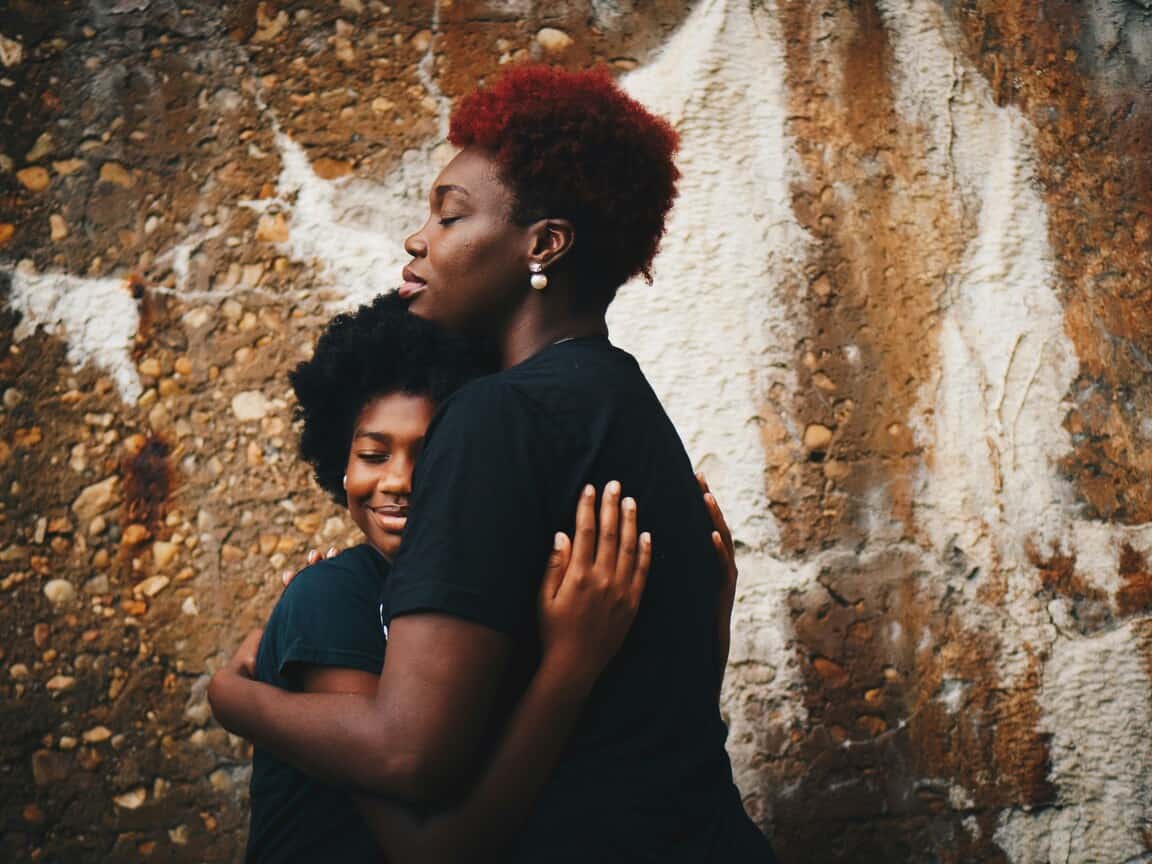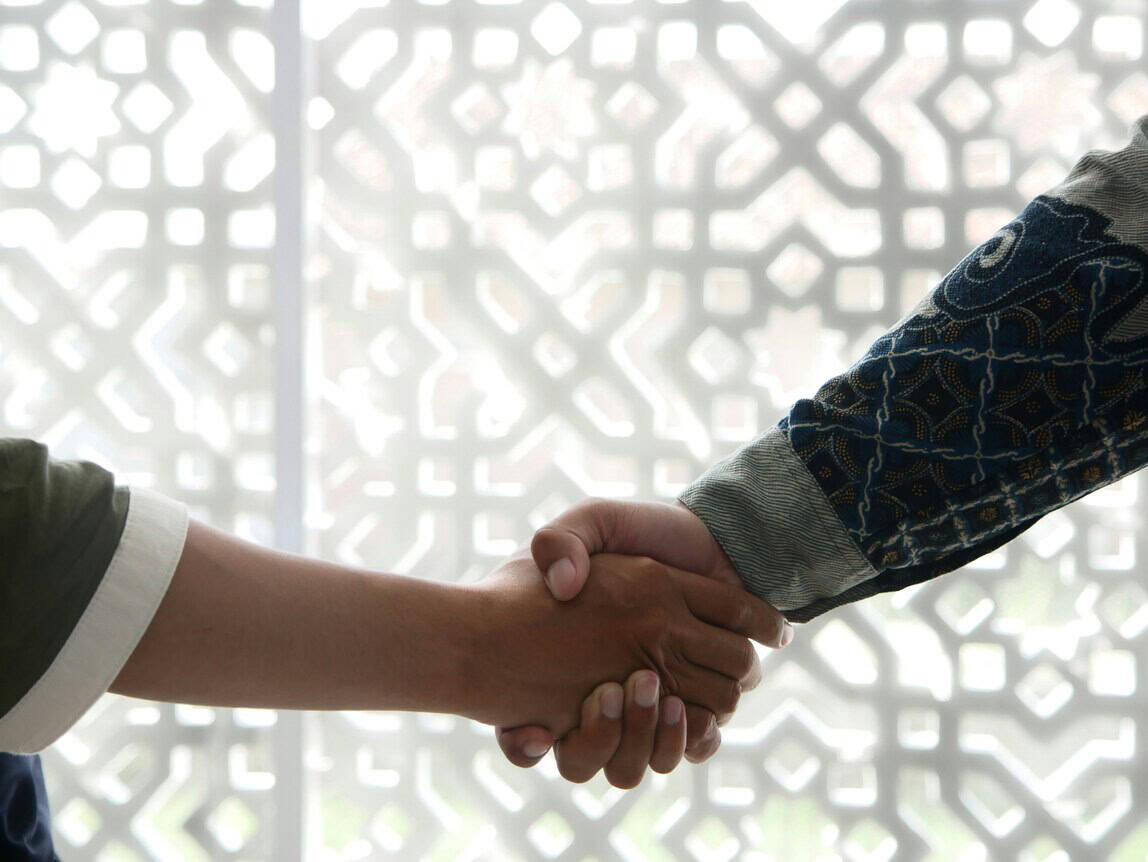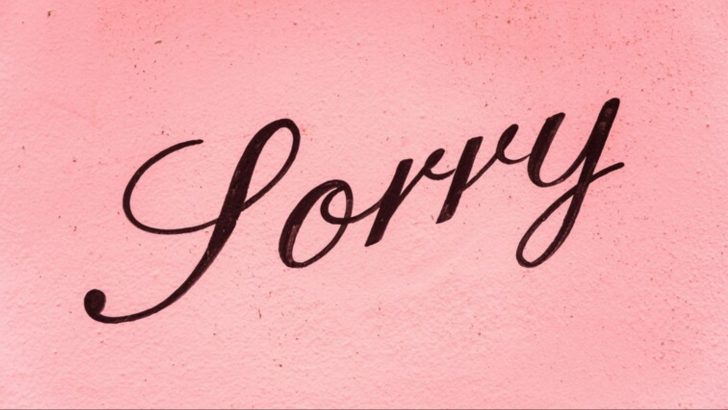For most of us, even when we know we messed up, actually saying sorry can feel like climbing a mountain.
It’s like our brains have a built-in resistance to admitting we’re wrong.
We’re wired to protect ourselves, and owning up can feel like a threat to ego or self-image.
Plus, cultural norms, past experiences, and even our fears of confrontation make it tough to be vulnerable.
But avoiding apologies can build resentment e damage relationships nel tempo.
Understanding why we avoid telling others we’re sorry is the first step to breaking free, mending relationships, and becoming more emotionally intelligent.
1. The Ego

Our ego is like a protective shield that keeps us from admitting fault.
When we mess up, our brain kicks into defense mode, where it rationalizes, blames others, or denies responsibility.
Saying sorry feels like a crack in that shield, exposing our flaws. It’s uncomfortable because it threatens our self-worth.
We feel looking weak or imperfect, so we hide behind pride invece.
Learning to see apologies as a sign of courage, and not weakness, can help us soften our ego’s grip and embrace honesty.
2. The Fear of Losing Authority

Many of us worry that saying we’re sorry will make others lose respect for us. Whether at work or in personal life, we fear appearing less competent or authoritative.
The fear can be especially strong in competitive environments or hierarchical settings.
We think “If I say I was wrong, they’ll think I’m unreliable,” but the truth is, people respect honesty and humility more than a mask of perfection.
Owning your mistakes actually builds trust.
It shows you’re human, approachable, and willing to grow, which often earns more respect than pretending you’re never in the wrong.
3. Past Embarrassment

Sometimes, our avoidance stems from old wounds – embarrassment or shame tied to previous mistakes.
If we’ve been ridiculed or criticized for admitting fault before, that memory sticks with us.
Il fear of humiliation can be paralyzing, making us avoid saying sorry altogether.
It’s like carrying a backpack filled with shame that we’re afraid will spill out if we admit we were wrong.
But acknowledging these feelings and understanding they’re part of our growth can help us release that shame and see mistakes as opportunities rather than failures.
4. The Cultural and Social Norms

In some social groups, apologies are seen as signs of weakness or loss of face.
If you grew up in an environment that values toughness and independence, admitting fault might seem like a betrayal of those values.
That social programming can make us resist saying sorry, fearing judgment or rejection.
However, most cultures around the world view humility and apology as signs of strength.
Recognizing that cultural influences shape our reactions can help us challenge those beliefs and feel more comfortable owning our mistakes.
5. The Fear of Conflict

Admitting we’re wrong often means opening ourselves up to conflict or rejection. We worry that saying sorry will lead to arguments, and that the other person might not forgive us.
This fear of confrontation keeps us silent, even when we know we should apologize.
Avoiding conflict can cause resentment to grow, damaging relationships long-term. Learning to approach apologies with empathy and calmness can reduce this fear.
Most conflicts are resolved only when honesty and humility are present.
6. The Illusion of Perfection

Many of us believe we should be perfect – at work, in relationships, and in life. When we slip up, this illusion shatters, and admitting fault feels like admitting failure.
This perfectionism makes us hesitant when it comes to saying sorry because we don’t want to appear imperfect.
But nobody is great at everything, and mistakes are simply human.
Embracing our imperfections and understanding that vulnerability is a strength helps us accept apologies as part of growth.
It’s okay to be imperfect. What matters is our willingness to learn and improve.
7. Lack of Emotional Awareness

Sometimes, we avoid saying sorry simply because we’re not in tune with our or others’ feelings.
If we’re disconnected from how our actions affect others, apologies become an afterthought.
Sviluppare intelligenza emotiva means recognizing our feelings and being able to understand others’ pain.
When we become aware, we’re more likely to see the importance of apologizing.
Pratica mindfulness and empathy can bridge this gap, helping up become more open and genuine in admitting when we’re wrong, which ultimately strengthens our connections.
8. The Fear of Losing Control

Admitting fault can make us feel like we’re losing control over a situation or relationship.
We want to be the ones in charge, not the ones apologizing and taking responsibility.
This resistance often stems from a desire to maintain power or avoid vulnerability. But true control comes from authenticity and humility.
Recognizing that being able to say sorry is actually a form of strength allows us to reclaim control over our relationships.
When we embrace vulnerability, we often find that others respect and trust us more.
9. Not Understanding Forgiveness and Guilt

Some people avoid apologizing because they associate it with guilt, or feel uncomfortable with forgiveness.
They might fear forgiving themselves or others, making an apology seem like a messy process.
This weird mental block can trap us in cycles of resentment and silence.
But forgiveness and saying sorry are powerful tools for healing.
Working through feelings of guilt, practicing self-compassion, and understanding that everyone makes mistakes can make it easier to admit fault and accept apologies.
This is a way to free yourself from emotional baggage.
10. How to Break Through and Grow

The good news is, we can all get better at saying sorry.
Iniziare a praticare consapevolezza di sé – notice when you’re avoiding admitting fault. Cultivate empathy to understand how your actions affect others.
Also, try to view mistakes as opportunities for growth rather than failures.
Building emotional intelligence through reflection, active listening, e compassione helps us become more open.
Over time, these habits create healthier relationships, prevent resentment, and turn apologies into bridges rather than barriers.
The more you practice, the easier it gets to say sorry and truly connect with the people around you.
A little Aquarius, devoted to writing and embroidery. Through my writing, I hope to empower readers to align with their true selves and navigate life’s mysteries with confidence.

